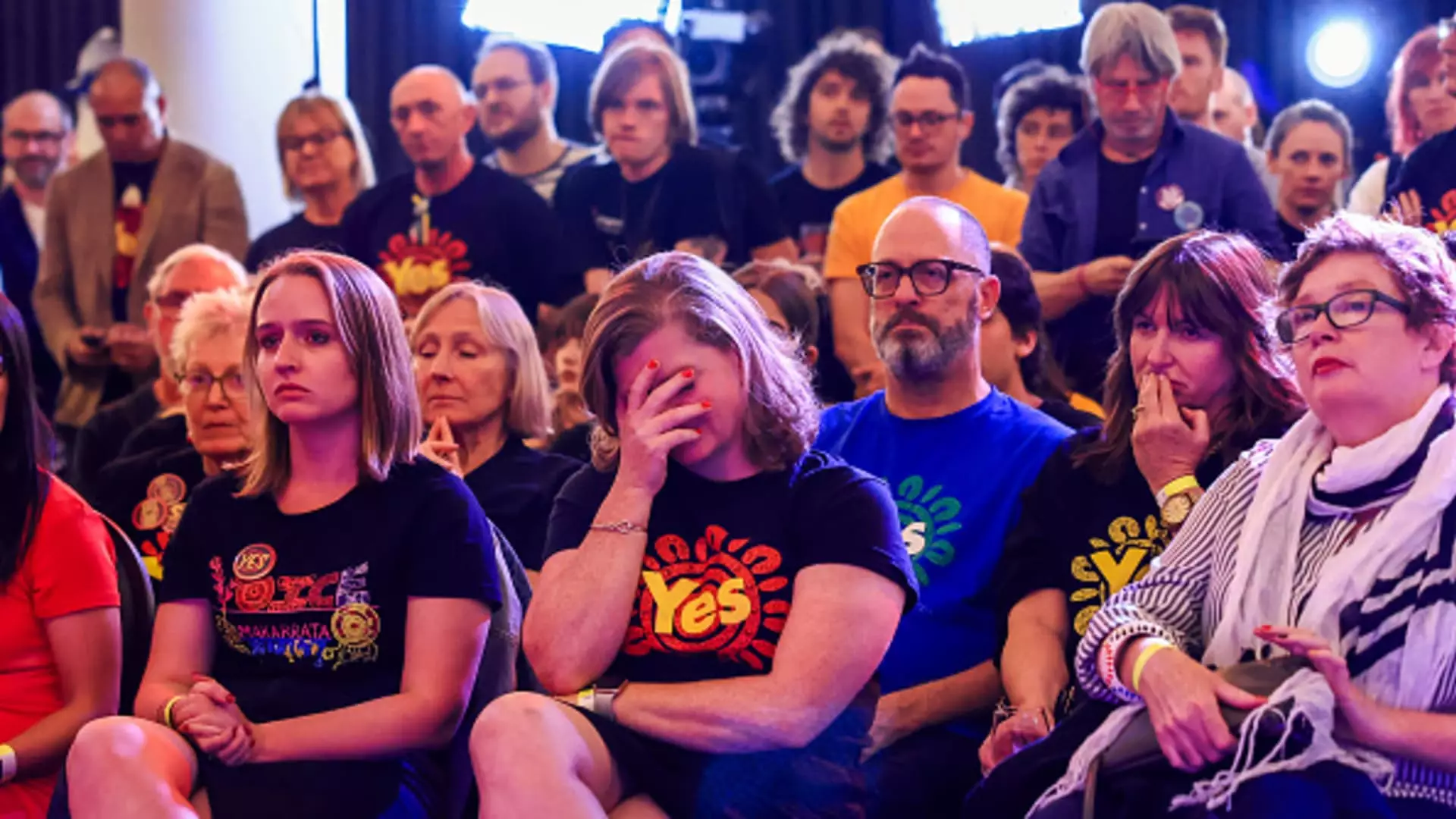Australia’s recent referendum to recognize Indigenous people in the constitution has resulted in a resounding rejection, dealing a significant blow to the country’s efforts for reconciliation with its First Peoples. With 45% of the vote counted, the “No” vote is leading with 57.35% to 42.65% in favor of “Yes.” Australian broadcaster ABC and other TV networks have projected that several states, including New South Wales, Tasmania, Queensland, and South Australia, would vote against altering the 122-year-old constitution. The inability to secure a national majority and the required support from at least four of the six states has left many Australians disheartened.
The proposal sought to establish an Indigenous advisory body, known as the “Voice to Parliament,” and provide constitutional recognition to Aboriginal and Torres Strait Island peoples. This move aimed to address the historical exclusion of Australia’s Indigenous citizens from the constitution. Despite inhabiting the land for approximately 60,000 years, Indigenous people face significant socio-economic disadvantages, making them the most marginalized group in the country. Proponents of the proposal, outlined in the Uluru Statement from the Heart, believed that enshrining an Indigenous Voice in the constitution would foster unity and usher in a new era of reconciliation.
While many Indigenous individuals strongly supported the proposal, some skeptics argued that it served as a distraction from achieving tangible outcomes. Critics, including the leaders of major conservative parties, believed that the proposed Indigenous advisory body would be ineffective and divisive, impeding government decision-making processes. The lack of unified political support for the referendum was evident, with leaders from opposing parties campaigning for a “No” vote. This discord within the political landscape likely contributed to the ultimate rejection of the proposal.
Referendums in Australia have historically been challenging to pass, with a success rate of only eight out of 44 attempts since the country’s founding in 1901. The most recent referendum before this was held almost a quarter of a century ago when Australian voters rejected a proposal for the country to become a republic in 1999. However, it is worth noting that in 1967, a referendum to count Indigenous people as part of the Australian population achieved resounding success with bipartisan political support. The stark contrast between the outcome of that referendum and the rejection of this one highlights the complexity and evolving nature of Australian society’s attitudes towards Indigenous recognition.
The rejection of this referendum has significant implications for both Australian society and Indigenous communities. Academics and human rights advocates fear that the setback in reconciliation efforts may persist for years to come. The Indigenous population, comprising 3.8% of Australia’s 26 million residents, will continue to grapple with the absence of constitutional recognition. This rejection of recognition also stands out as a significant setback for Prime Minister Anthony Albanese, who has championed the Indigenous Voice as a key feature of his term in office since May of last year.
In the wake of this referendum, there is a renewed urgency to find alternative paths to reconciliation. The rejection calls for a collective effort to redefine strategies and chart a new course forward. The task at hand for Australia is to prioritize open dialogue, education, and understanding to bridge the gap between Indigenous and non-Indigenous people. The need for practical and positive outcomes remains, and the focus should now shift towards finding common ground and implementing inclusive policies that aim to improve the lives of Indigenous communities.
The failure to recognize Indigenous people in Australia’s constitution represents a significant setback in the country’s journey towards reconciliation. The divisions and discontents surrounding the proposal, coupled with the inherent difficulties of passing referendums, have ultimately led to its rejection. Moving forward, it is crucial for the nation to reflect on this outcome, learn from it, and ensure that substantive steps are taken to address the deep-rooted concerns outlined in the Uluru Statement from the Heart.


Leave a Reply